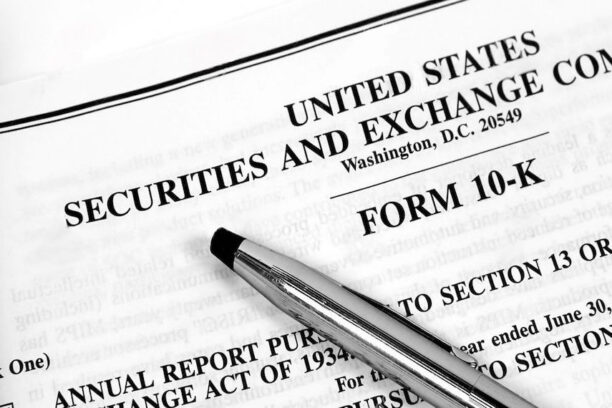The ROI/business value of sustainability is the newest thing (it isn’t actually new at all, but go with me on this for the moment). CSOs and other in-house staff wax poetic on their ROI at conferences, seminars, on LinkedIn and other venues for posts/articles. Consultants brag on financial gains made by clients implementing their solutions and advice. Investors and asset managers discuss portfolio company performance. Media outlets covering general business and sustainability hype examples of revenue and profit growth from corporate sustainability initiatives.
That’s all good news, except… well –
For US publicly-traded companies, most claims of financial value are anecdotal, informal and probably shouldn’t be relied on.
Some of you probably think that’s heresy. But here is my challenge to you in rebutting my theory: find several instances of US companies claiming sustainability ROI and then go read their latest SEC 10-K report. Chances are you won’t find any discussion of sustainability-related financial gains or cost savings there. Then go check their sustainability report – you will likely run into the same thing.
Companies presenting ROI numbers informally without including them in formal reports are saying “just trust me.”
Yes, there are reasons why companies don’t report these numbers (I go into detail about financial accounting versus managerial accounting, basics of securities law and more in the introduction to our research paper on the topic). But there are also reasons and options for including sustainability financial values in formal disclosures, using internal controls for financial reporting (ICFR) or sustainability reporting (ICSR) – giving numbers credibility and communicating them with confidence. Several reasons and recommendations for reporting are also discussed in our research.
In a recent LinkedIn exchange with NYU Stern’s Alison Taylor about the lack of corporate reporting on sustainability financials, she wondered
“whether companies are even asking that question [of converting operational metrics to financial values]. I agree that if they did examine this, the results would be more useful and interesting than what is currently produced.”
Next month, we will publish a guidebook titled “Fighting ‘No’: A Sustainability Practitioner’s Guide to Countering Arguments Against Formally Disclosing Financial Value of Sustainability Programs” providing specific counterarguments from TheCorporateCounsel.net’s team of securities law experts and some of PracticalESG.com’s Advisory Board. This will be invaluable information for sustainability practitioners working to defend against anti-ESG litigation, satisfy investor concerns or maintain budget/executive relevance in these challenging times.
Make sure you are subscribed to our free blog to be notified of this important announcement.
Our members can learn more about sustainability disclosures here.
If you’re not already a PracticalESG.com member, sign up now and take advantage of our no-risk “100-Day Promise” – during the first 100 days as an activated member, you may cancel for any reason and receive a full refund. But it will probably pay for itself before then. Members also save hours of research and reading time each week by using our filtered and curated library of ESG/sustainability resources covering over 100 sustainability subject areas – updated daily with practical and credible information compiled without the use of AI.
Are you a client of one of our Partners – SourceIntelligence, TRC, Kumi, Ecolumix, Elm Consulting Group International or Impakt IQ? Contact them for exclusive pricing packages for PracticalESG.
Practical Guidance for Companies, Curated for Clarity.










